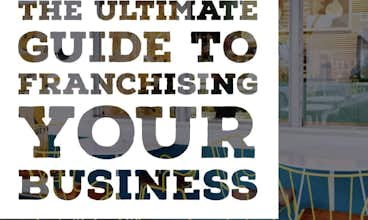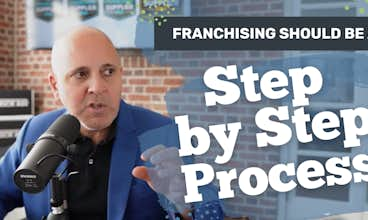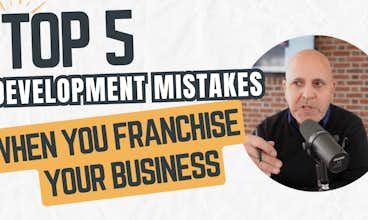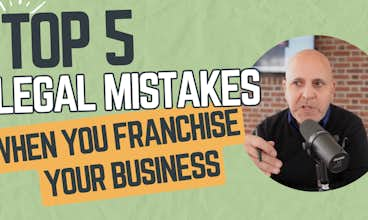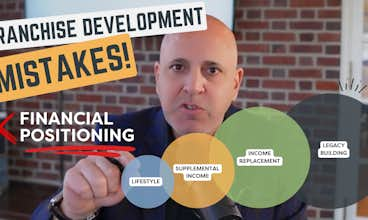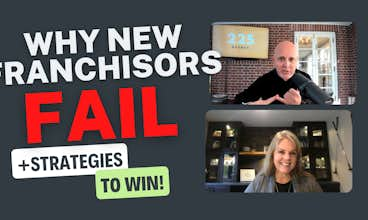The Differences Between Licensing and Franchising
The difference between licensing and franchising is that franchise agreements involve an extensive business relationship between franchisor and franchisee whereas license agreements are limited and relate to a singular activity such as the shared use of a trademark. Within every franchise agreement is a license to use a trademark but license agreements do not include the overall control and uniformity found in franchise agreements.
License agreements are used by independent businesses. Franchise agreements are used to create a singular brand with uniform systems and operations. Below is a summary of the differences between licensing and franchising:
- Different Levels of Control - License agreements are limited to granting another business the right to use a trademark or technology but does not include control over how the business operates. Franchise agreements are broader and control how a business operates.
- Different Legal Regulations - License agreements are governed by general contract law. Franchise agreements are regulated by federal and state franchise laws.
- Different Business Goals - License agreements are used to monetize trademarks and technology through independently operated businesses. Franchise agreements are used to grow a brand through outlets that operate under uniform systems controlled by the franchisor.
What is Licensing?
Licensing involves a business agreement that provides for the shared use of a trademark, technology or other intellectual property asset. The agreement that creates a license relationship is a license agreement and the parties to a license agreement are the licensor and licensee. License agreements are similar to franchise agreements in that they both relate to the shared use of business assets and intellectual property rights. License agreements are different from franchise agreements in that license agreements are more limited than franchise agreements and do not provide the licensor with control over how the licensee operates the underlying business. If a license agreement is prepared improperly and includes too much control over the underlying business, the license agreement may give rise to an illegal franchise relationship.
Examples of license agreements, include:
- The license of a trademark where the licensee is granted the right to use a trademark for a limited and specified purpose. Example: Walt Disney granting McDonalds a license for McDonalds to co-brand McDonalds Happy Meals with a Disney trademarked character.
- The license of a technology where the licensee is granted the right to use the licensor's software, or other intellectual property asset. Examples: Apple granting individual computer users a license allowing them to use the Mac operating system and, Spotify granting subscribers a license to listen to music on the Spotify network.
- The license of a patent where the licensee is granted the right to use a patented process or technology. Example: A patent owner granting a drug manufacturer a license to use the patented formula in manufacturing and selling a prescription drug.
In each licensing example, the underlying business operations of the licensor and licensee are distinct from one another and, unlike franchising, the degree of control that the licensor possesses over the licensee is limited to the underlying trademark or technology that is the subject of the license. Using the McDonalds and Disney Happy Meals example, although Disney will have say and control over how McDonalds uses Disney's trademarks on McDonalds Happy Meals, Disney does not have control over McDonald's overall business operations.
What is Franchising?
Franchising involves a business agreement that includes the license of a trademark and provides for the overall control over how the underlying franchised business is operated. The agreement that creates a franchise relationship is the franchise agreement and the parties to a franchise agreement are the franchisor and the franchisee. Unlike a license agreement, franchise agreements are intended to duplicate a brand, its business model, and its on-going operations. Franchise agreements require uniformity and within a franchise agreement, unlike a license agreement, the franchisor is granted extensive control over how the underlying business is operated.
Examples of franchises include restaurants like McDonalds, retailers like GNC, healthcare providers like American Family Care, service providers like RE/MAX, and many other businesses and industries. To learn more about franchising read our Ultimate Guide to Franchising Your Business.
Licensing is Not an Alternative to Franchising?
Licensing is not an alternative to franchising and there are important differences.
Although every franchise agreement includes a license, not every license agreement creates a franchise. What qualifies as a franchise is determined by the Federal Franchise Rule issued by the Federal Trade Commission. Under the Federal Franchise Rule, a franchise is created by any written or oral agreement that:
- Creates a continuing commercial relationship;
- Grants a trademark license (although this is not required under certain circumstances);
- Controls how a business is operated; and
- Requires the payment of a fee.
Because points one through three are common to both licensing and franchising, establishing whether or not a franchise relationship exists typically requires an analysis of control. Under the federal Franchise Rule, if a licensing agreement meets the criteria of a franchise, a franchise relationship will exist and franchise regulation will apply.
Advantages and Disadvantages of Licensing vs Franchising
The advantage that licensing has over franchising is that license agreements are basic legal agreements that, typically, are not regulated and are less expensive to create. Franchise agreements are regulated by federal and state franchise laws, require FDD disclosure, registration within franchise registration states and, compared to license agreements, involve more legal steps and legal expense. The disadvantage of licensing is that license agreements are extremely limited in what they can regulate and control and, license agreements cannot be used to achieve the multi-unit expansion of a trademarked brand with uniform systems and quality control standards.
When it comes to the future of your business, “dressing up” a franchise as a licensing system can carry serious risks. In addition to legal costs and future negative FDD disclosures, violating franchise laws – even accidentally – can result in government actions, fines, civil lawsuits, rescissions and more.
Summary
The difference between licensing and franchising is extremely narrow and is determined by the degree of control created by the underlying agreement. Franchising is used to achieve the multi-unit expansion of a brand through franchised locations that maintain and operate under uniform systems and standards. Licensing is used to monetize trademarks and other intellectual property used by independently operated businesses.
